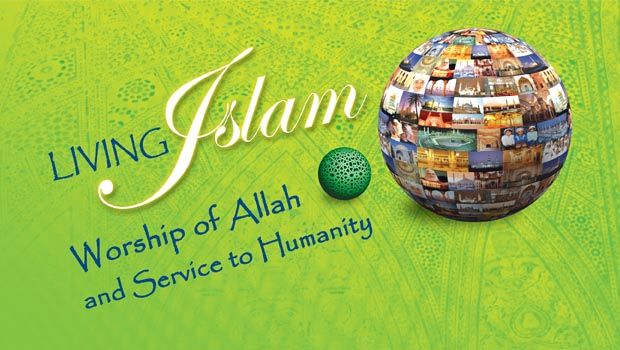Our faith and worship of Allah SWT cannot be complete until and unless we serve and treat His creation with utmost kindness. Too often Muslims focus on the ritualistic aspects of worship, while neglecting the core values that Islam promotes. Prayers, fasting, charity, hajj, remembrance of Allah SWT and similar acts of worship form the basis of Islam. They are extremely important to firmly establish faith. But while these form the basis for worshipping Allah Almighty, the completion and perfection of the human being comes from serving humanity. The benefits of which are countless, while the consequence of turning away from serving humanity is very humiliating, may Allah SWT protect us.
There are consequences of ignoring worshipping Allah Almighty and ignoring the need of humanity
The term “worship” covers a very broad spectrum from aspects of belief to good deeds and it is often defined as obedience to Allah by carrying out what He has commanded. Another very standard definition of worship, ibaadah, is that it is a collective term for everything which Allah loves and is pleased with, and inward and outward actions that reflect that. Hence all forms of good deeds as mentioned in the Qur’an, as well as those established by Rasoolullah SAS, would be considered as acts of worship, from the five daily prayers to giving a thirsty dog some water to drink. With this understanding, the opportunities for acts of worship are numerous and we should not consider even the smallest act of kindness as trivial. Even a smile is sadaqah, a voluntary charity, and an act of worship. The Prophet SAS said: “Do not belittle any good deed, even meeting your brother with a cheerful face” (Muslim).
This understanding and practice of worshipping Allah Almighty is not something new to our ummah or to the nations before us. It is a continuum of God’s guidance to mankind as part of His universal message to humanity, as He tells us in 42:13 of the Qur’an, as translated: “He [Allah] has ordained for you the same religion [Islam] which He ordained for Noah and that which We have inspired in you [O Muhammad], and that which We ordained for Abraham, Moses, and Jesus: establish the religion and make no divisions in it.”
With this continuation of the same message, Allah Almighty tells us that previous nations also took the oath to serve Him and to be kind to His creation. In 2:83-84 Allah Almighty says, as translated: “Remember when We took a pledge from the Children of Israel: ‘Worship none but one Allah; be good to your parents and kinsfolk, to orphans and the poor; speak good words to all people; keep up the prayer and pay the prescribed alms. Then all but a few of you turned away and paid no heed. And [remember] when We took your covenant [saying]: Shed not the blood of your people, nor turn out your own people from their dwellings. Then, [this] you ratified and [to this] you bear witness.”
In these verses Allah Almighty gives the command to worship Him through the rituals such as praying to Him alone, to have hope and fear in Him alone, and to fulfill His rights that are due upon man. After this come the rights of human beings beginning with the parents and relatives and neighbors, orphans, widows, and the poor and needy. One must never think that worshipping Allah SWT is done in isolation from serving humanity as such service itself is an act of worship because Allah SWT commands us to do so. All these kind acts are prescribed as a way for us to get closer to our Creator. Thus service to humanity is considered the greatest manifestation and proof of one’s trueness to faith and devotion to the Lord. Narrated Abdullah bin Umar that Rasoolullah SAS said: “The most beloved people to Allah SWT are those who help and benefit others the most, and the most beloved actions to Allah SWT is pleasure and happiness that you cause to enter the heart of a Muslim, or to solve one of his problems, or to pay off his debt, or to prevent him from being hungry; and working to help my Muslim brother is more beloved to me than making i’tikaf in this masjid for a month. And whoever controls his anger, Allah will conceal his faults, and whoever controls his ill feelings, Allah SWT will fill his heart with contentment on the Day of Judgment, and whoever strives to help fulfill a need for his Muslim brother, Allah will make his feet steadfast on the day of Judgment; and bad manners ruin good deeds just like vinegar ruins honey.”
It is should be noted that part of Allah’s wisdom is that He tries His servants with goodness and constraints, health and sickness, wealth and poverty, strength and weakness, youth and old age, and happiness and sorrow —every possible circumstance in order that the believer might increase in his belief. Therefore, believers who are tested and exercise patience with what Allah decrees for them will receive the rewards of Allah SWT in abundance, as Allah SWT informs in 2:155-156, as translated: “And certainly, We shall test you with something of fear, hunger, and loss of wealth, lives and fruits. But give glad tidings to those who are patient, who, when afflicted with calamity, say, ‘Truly to Allah we belong and truly to Him we shall return.’ Such are they on whom are blessings from their Lord, and mercy. Such are the rightly guided.” And at the same time, it is a test of faith to see if believers extend help to others in need. So when difficulties such as earthquakes, flood, tsunamis, hurricanes, droughts, or man-made disasters such as wars or persecution befall their fellow human beings, Muslims are obliged to rush to their aid and to relieve this hardship as much as can be, and to help those afflicted by alleviating their suffering and providing for their needs.
One must never think that worshipping Allah SWT is done in isolation from serving humanity as such service itself is an act of worship because Allah SWT commands us to do so
Abu Huraira reported that the Messenger of Allah, peace and blessings be upon him, said, “Whoever relieves the hardship of a believer in this world, Allah will relieve his hardship on the Day of Resurrection. Whoever helps ease someone in difficulty, Allah will make it easy for him in this world and in the Hereafter. Whoever covers the faults of a Muslim, Allah will cover his faults in this world and in the Hereafter. Allah helps the servant as long as he helps his brother. Whoever travels a path in search of knowledge, Allah will make easy for him a path to Paradise, for a people do not gather together in the houses of Allah, reciting the Book of Allah and studying together, except that tranquility will descend upon them, mercy will cover them, angels will surround them, and Allah will mention them to those with Him. Whoever is slow to good deeds will not be hastened by his lineage” (Sahih Muslim).
The Messenger of Allah SAS also said: “Allah is Merciful toward those who are merciful among His servants” (Al-Bukhari).
The true believers are so close and connected in their deen that the Prophet SAS also said:
“The similitude of believers in regard to mutual love, affection, and fellow-feeling is that of one body; when any limb of it aches, the whole body aches, because of sleeplessness and fever.” We see this in the lives of the Sahaabah (RA) and one such act of selflessness is narrated by Abu Huraira (RA) who said:
“Once a man came to Prophet SAS and said: ‘I am hard pressed by hunger.’ The Prophet found that he had nothing to feed him, so he said to his companions, ‘Who will entertain this [man] as a guest?’ One of the Ansars said, ‘Ya Rasoolullah I will.’ So he took him home and asked his wife, ‘Have you got anything?’ She answered, ‘Nothing, except a little food for the children.’ He said, ‘Keep the children busy with something and when they ask for food put them to sleep. When the guest enters, extinguish the light and give him the impression that we are also eating.’ So they sat down and the guest ate and they passed the night hungry. When he came to the Prophet SAS in the morning, the Prophet SAS said to him, ‘Allah admired what you did with your guest last night’” (Bukhari and Muslim).
There are consequences of ignoring worshipping Allah Almighty and ignoring the needs of humanity. Allah SWT tells us in 4:36-37 about the penalty for that heedlessness and neglect: “Worship Allah and join none with Him in worship, and do good to parents, kinsfolk, orphans, the poor, the neighbor who is near and the neighbor who is a stranger, the companion by your side, the wayfarer, and those whom your right hands possess. Verily, Allah does not like such as are proud and boastful, those who are miserly and enjoin miserliness on other men and hide what Allah has bestowed upon them of His bounties. And We have prepared for the disbelievers a disgraceful torment.” In these verses the command is given and refusal to carry them out is tantamount to being arrogant and boastful, and such qualities Allah Almighty does not like.
In a hadith reported in Sahih Muslim and narrated by Abu Huraira (RA), the Messenger of Allah said: “Verily, Allah the Exalted and Glorious will say on the Day of Resurrection: ‘O son of Adam, I was ill but you did not visit Me.’ He would say: ‘O my Lord, how could I visit you and You are the Lord of the worlds?’ Thereupon He would say: ‘Did you not know that such and such a slave of Mine was ill but you did not visit him? Did you not realize that if you had visited him, you would have found Me with him? O son of Adam, I asked food from you but you did not feed Me.’ He would say: ‘My Lord, how could I feed You and You are the Lord of the worlds?’ He would say: ‘Did you not know that such and such a slave of Mine asked you for food but you did not feed him? Did you not realize that if you had fed him, you would certainly have found [its reward] with Me? O son of Adam, I asked water from you but you did not give it to Me.’ He would say: ‘My Lord, how could I give You [water] and You are the Lord of the worlds?’ Thereupon He would say: ‘Such and such a slave of Mine asked you for water to drink but you did not give it to him. Did you not realize that if you had given him to drink you would have found [its reward] with Me?’” (Muslim).
In Surah Ma’oon, verses 1-7, Allah SWT tells us, “Have you seen him who denies the Judgment [to come]? That is he who repulses the orphan and urges not the feeding of the poor. So woe unto those performers of prayer who are neglectful of their prayers, those who would be seen [by others] but refuse small kindnesses.” Thus serving humanity becomes the embodiment of the fruits of worship that a Muslim practices and the true reality and character that is required of a believer. So no matter how meticulous a believer is in performing his rituals, he will not achieve the highest levels of faith except by demonstrating his caring, kindness, and compassion for other people. Ibn Abbaas said: “To strive in the way of helping my brother in need is better for me than one month of seclusion in the Mosque.”
No human being can succeed in isolation from others. Each individual is meant to participate in in the social order— within the family, as a member of the community, and in the larger society supporting and helping others in need. Such a noble character is exemplified by Rasoolullah SAS. In fact, when he received his first revelation and hurried home to his wife Khadija (RA), and described his encounter with the angel Jibreel, she comforted him by saying, “Nay! But receive the good tidings! By Allah, Allah will never disgrace you, for by Allah, you keep good relations with your kith and kin, speak the truth, help the poor and the destitute, entertain your guests generously, and assist those who are stricken with calamities.” It is through serving humanity that the greatest of human beings, Muhammad SAS, was ushered into Prophethood, and his mission was and is — guiding us in worship of our Lord and service to humanity, a magnificent example for us to follow if we want happiness in this life and the Hereafter.





